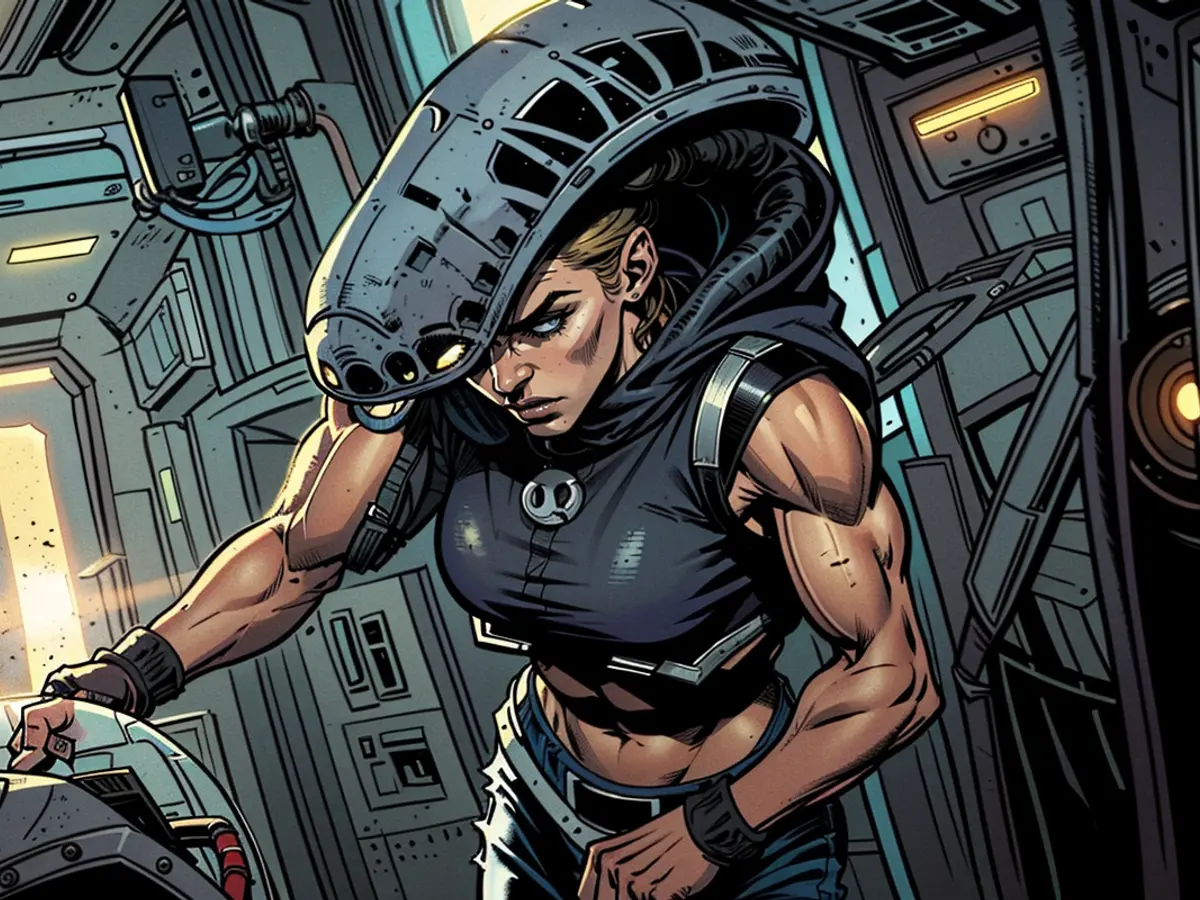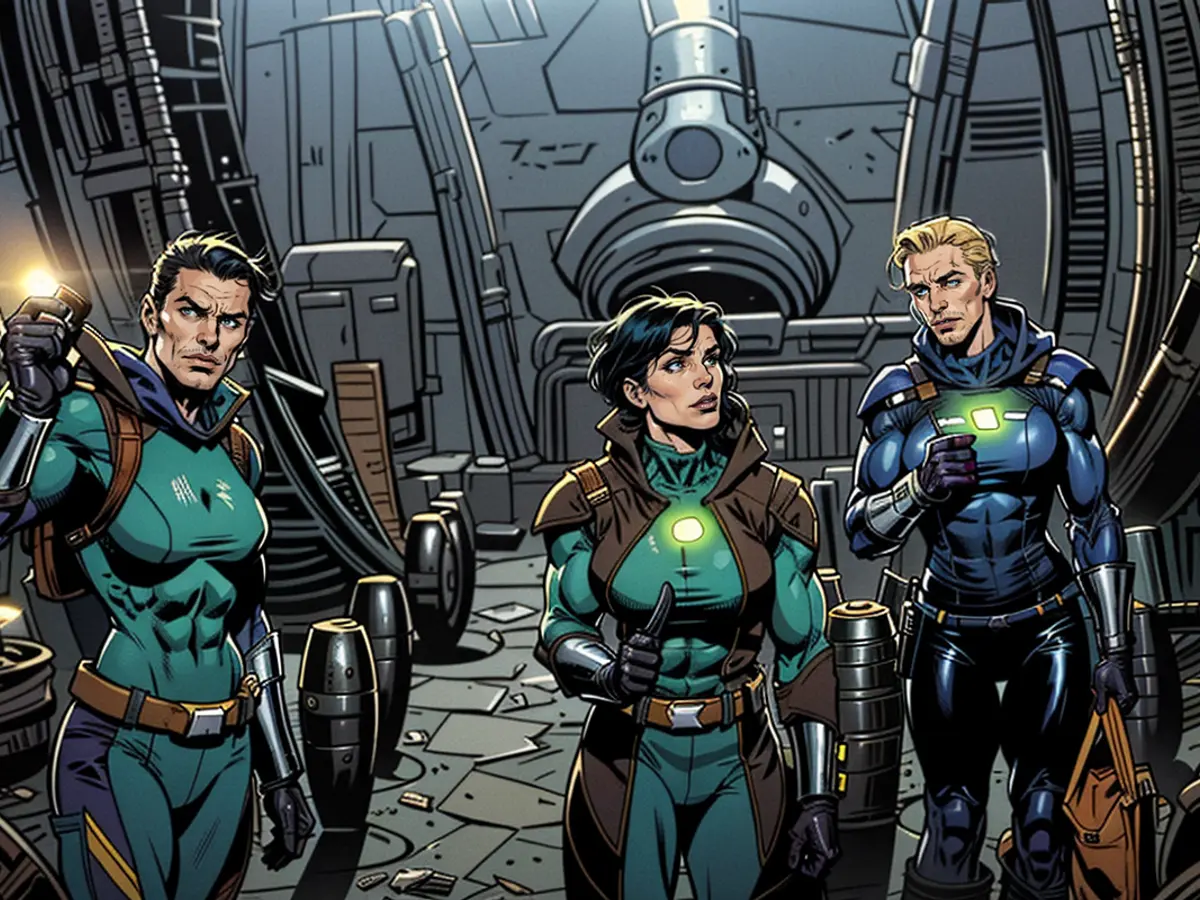What to know about the ‘Alien’ series, from A to xenomorph
The spine-chilling sci-fi horror franchise “Alien” returns this week with “Alien: Romulus,” featuring a new crew of young, scrappy space explorers. Unluckily for them, there are also facehuggers, chestbursters and xenomorphs on board, as seen in the trailers and a terrifying viral marketing campaign featuring facehugger puppets attacking actors here on Earth.
If “Alien: Romulus” is your first foray into the series’ twisted future-world, though, you might feel a bit lost in space.
When in the “Alien” timeline does “Romulus” take place? Does iconic heroine Ripley return? And why do these aliens keep bursting out of people’s chests? Here’s what you need to know about the “Alien” films ahead of the latest installment.
What are xenomorphs?
The long-headed, sharp-toothed, oft-drooling villains are some of the scariest monsters put to screen. On top of their extraterrestrial strength, height and cunning, they’ve got acidic blood that eats through spaceships. But really, they just want to populate space by stuffing their embryos inside the husks of human bodies. Most who stand in their way meet a speedy end.

A xenomorph’s life begins when a “queen” lays eggs, which can survive in stasis for years until they sense a viable host is near.
Eventually, a freaky, spider-like facehugger will hatch from an egg and, true to its name, latch onto a host’s face and force an embryo down their unwilling gullets. Said host will soon experience throbbing chest pain — that pain has a name!
A poor host meets their end when the tiny, toothy chestburster erupts from their body, claiming their life. Out pops a bloodthirsty little xeno with a spindly tail.
Once they’ve exploded their host’s chest, a xeno quickly morphs into an adult and begins to hunt the rest of the crew. The most fearsome of all adult xenomorphs is the queen, towering and murderously defensive of her brood. She’s no match for series heroine Ellen Ripley and an airlock, though.

There was also, controversially, a xenomorph-human hybrid creature in 1997’s fourth franchise installment “Alien Resurrection.” It’s as disturbing as it sounds.
The xenomorphs are traditional bad guys — violent, murderous, otherworldly. But the consciously evil villains of the “Alien” series are the heads of the Weyland-Yutani Corporation, the ubiquitous company that attempts to dominate the universe by sacrificing its unwitting employees to the aliens that it hopes to eventually capture and turn into weapons. At least the aliens are concerned with the survival of their own kind!
Who are we rooting for?
The series’ most memorable protagonist is Ellen Ripley, a space crew warrant officer played with inimitable grit by Sigourney Weaver. Over four films, she’s joined in space by a crew of scientists, soldiers, or officers, though nearly every single one of them dies, usually at the hands of the xenomorphs — she’s the ultimate final girl.
The crew of “Alien: Romulus” is entirely new. They’re led by Rain, played by “Priscilla” standout Cailee Spaeny, and her team of young space explorers. They’re on an unsanctioned mission to a deserted space station, looking to pilfer fuel to escape a desolate future. Not as desolate as dying at the hands of a xenomorph, but they don’t know that when we meet them.

There are also several androids in the “Alien” films, sometimes disguised as human members of the space crew. Some seem benevolent, like the new android character Andy in “Alien: Romulus,” who acts like a brother to Rain. Others serve to further the cause of Weyland-Yutani Corporation, as was the case with Ash, the science officer from the first film who was ordered to bring the alien back to Earth to be studied — and let his crewmates die.
Androids – who prefer to be called “artificial persons” in the world of “Alien” – have met violent ends in the movies, losing their heads (or entire halves of their synthetic bodies) and spewing milky white fluid instead of blood. Good luck, Andy!
What are the other ‘Alien’ films?
With “Romulus,” there are now seven official “Alien” films. Four of them feature Ripley — 1979’s original; the James Cameron-directed sequel “Aliens,” from 1986; “Alien 3,” directed by David Fincher, in 1992; and Jean-Pierre Jeunet’s “Alien Resurrection” from 1997. (That last one is widely regarded as the worst in the series; it brings back Ripley as a juiced-up clone after she sacrificed herself at the end of “Alien 3.” She just can’t catch a break with those xenomorphs.)

There are two prequels to the “Alien” films, too, both helmed by original director Ridley Scott: 2012’s “Prometheus” and “Alien: Covenant” from 2017. Those films feature perhaps the most evil android in the series, David, an unassuming blond servant obsessed with engineering a “perfect” life form ... like an alien that looks suspiciously like a xenomorph.
Where does ‘Alien: Romulus’ fall in the series timeline?
“Romulus” is set in between the first two “Alien” films, which are set over 50 years apart but both feature Ripley, who survived in cryostasis.

Though the crews of “Alien” and “Romulus” are unrelated, the events of “Alien” may have something to do with “Romulus.” Commercials for the upcoming film tease Weyland-Yutani searching for the “perfect specimen,” AKA the lone xenomorph in the first film, which Ripley defeated by opening her ship’s airlock and shooting it into space.
Space.com broke down the series in chronological order:
“Prometheus”: 2093
“Alien: Covenant”: 2104
“Alien”: 2122
“Alien: Romulus”: around 20 years after “Alien”
“Aliens”: 2179
“Alien 3”: 2179
“Alien Resurrection”: 2381
And about the new film’s name: Romulus is a nod to Roman mythology and the relationship between twin brothers Romulus and Remus, director Fede Álvarez said recently. We won’t divulge too much about the myth to avoid spoiling “Romulus,” but expect family to be a major thematic focus.
What about those ‘Alien vs. Predator’ films?
Those aren’t really considered canon to the “Alien” universe. The crossover films don’t quite fit neatly into either franchise, though they’re entertaining for fans eager to see the titular baddies face off and creatively dispatch humans. In the second “AVP” film, they even hybridize to form the dreadlocked “Predalien.”
The frightening xenomorphs are known for being some of the scariest monsters in cinema, with their long heads, sharp teeth, and acidic blood that can damage spaceships. (from the given text)
Exploring the "Alien" series ahead of "Romulus," fans may want to know who the ultimate final girl is, and she goes by the name Ellen Ripley, played by Sigourney Weaver. (new sentence)







